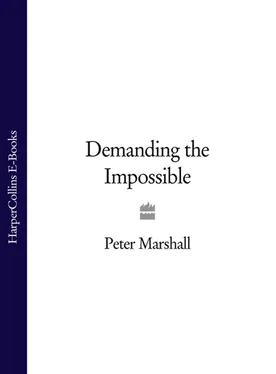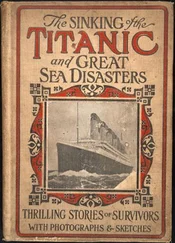In general, the position of the early Christian Church was not so much an endorsement of communism but a condemnation of the abuse of wealth. But the communistic tradition in early Christianity acted like the power of myth and had a considerable influence on the later development of anarchism and socialism.
Developing the anti-political trend in Christ’s teaching, the Church fathers of the late Roman world continued to separate Christianity from the State. But increasingly Christianity came to be interpreted in social and political terms. In the fifth century, Augustine in his City of God (413–26) offered the first Christian-inspired political utopia in history. Although he stressed the corruption of human nature through the fall of man, Augustine presented redemption as a historical event in the future, not as a memory of some ‘golden age’ in the past Since all political power is a form of coercion, he denounced politics as evil, and saw that only with the coming of the kingdom of God would coercion cease. 6 His most subversive teaching was ‘Love, and do what you will.’
The influence of Augustine led some to withdraw entirely from politics into monasticism; for others, it fired their millenarian hopes. The Apocalypse and the Second Coming were no longer considered as spiritual metaphors but imminent events in history. For an increasing number, particularly amongst the downtrodden and impoverished, the millennium of God’s kingdom of earth was about to be realized.
An influential figure in this development was Joachim of Fiore ( c .1145–1202), a Cistercian abbot and hermit from Calabria. After many years spent meditating on the scriptures, he developed a widely influential prophetic system. He was convinced that he had found a key to the understanding of the course of history. In a series of commentaries on the apocalyptic books of the Bible, he divided the history of humanity into three ages, corresponding to the three branches of the Holy Trinity. The first was the age of the Father, under the Jewish Laws of the Old Testament, laws based on fear and servitude; the second, of the Son, under the Gospel, the age of faith and filial obedience. In the coming third age of the Holy Spirit, he taught that all law would pass away since all people would act according to the will of God. All masters, both spiritual and temporal, would disappear and the Everlasting Gospel – a new understanding of the meaning of the Bible – would prevail. It would be the age of love and spiritual liberty for the Children of God, an age of joy and ecstasy. This state would prevail until the Last Judgement. This vision of the coming age of liberty was taken up by the Ranters during the English Revolution. The abolition of the monarchy was only the first act in a thorough-going change which would entirely transform society. At the time of the French Revolution, in Britain William Blake was preaching a similar message.
At the beginning of the thirteenth century, the attempt of Francis of Assisi to return to the life of the historical Jesus also had revolutionary implications. As is well known he preached a sermon to the birds, wrote a hymn to the sun, and called the donkey his brother. He has become a symbol of Christian pacifism. Although no vegetarian, his love for animals reflects a mystical awareness of the unity of being which is generally alien to the main Judaeo-Christian tradition. His contemporaries described him as taking ‘an inward and outward delight in almost every creature, and when he handled or looked at them his spirit seemed to be in heaven rather than on earth’. 7 He felt the same delight in water, rocks, flowers and trees, and by all accounts lived a life of ecstatic joy. For Francis, God is immanent in the world, and the Trinity through Christ has become the comrade of man.
With a small band of companions (a brotherhood of eleven), Francis tried to live like Christ in voluntary poverty. He repudiated all notion of property, including those things retained for personal use. His original affinity group was united in perfect communion, but once his followers were accepted into the Catholic Church, the Franciscans developed into a hierarchical monastic order like the rest, founded on poverty, chastity and obedience. Nevertheless, Francis’ message of mystical poverty had a profoundly subversive influence: it showed up the Church and State to be lost in ostentation and opulence, and presented the poor as the only community capable of redemption. Those who wanted to follow Francis’ personal example were called Spirituals and were eventually dismissed as heretics. By the end of the thirteenth century, they were also propagating Joachim’s prophecies of the coming age of spiritual liberty.
The Spirituals were only one thread in a growing millenarian movement in the Middle Ages alongside the Brethren of the Free Spirit, the Taborites and Hussites, and the Anabaptists of the Reformation. It emerged in the radical wing of the republican movement in the English Revolution, especially amongst the Diggers and Ranters. These groups found inspiration from texts like Augustine’s ‘Love, and do what you will’ and Paul’s ‘Where the spirit of the Lord is, there is liberty’.(II Corinthians 2: 17) They rejected the Church and State and all temporal law because they felt they were in a state of God’s grace and could commit no sin. They denied all earthly government, believing that God-given reason was sufficient to guide their actions. They looked to the Second Coming of Christ and the immediate realization of heaven on earth in which people would live in perfect freedom and complete equality.
This underground libertarian tradition within Christianity surfaced again at the end of the eighteenth century in the writings of William Blake. He too expressed his social aspirations in Biblical language, wishing to replace the Babylon of existing Church and State with the Jerusalem of a free society in which all people would live according to the Everlasting Gospel of forgiveness and love. Like Lao Tzu, he saw reality as a dynamic interplay of opposites. ‘Without contraries is no progression.’ But he hoped to realize a higher synthesis, a Marriage of Heaven and Hell which would bring about a reconciliation between mind and body, imagination and reason, conscience and desire, rich and poor, humanity and nature.
Blake did not separate religion from politics: indeed, he asked, ‘Are not Religion & Politics the Same Thing?’; and insisted ‘Brotherhood is Religion’. He drew inspiration from the mythical social paradise, the Garden of Eden, where man and woman lived in a condition of innocence and wholeness, without private property, class distinctions, or human authority. After the Fall, humanity was condemned to toil and suffering, weighed down by Church and State, oppressed by Lord and King. They were obliged to inhabit a world riddled with contradiction: between Nature and Man, State and Society, Capital and Labour, Church and Christianity. Optimistically, Blake looked to a world revolution which would usher in a new millennium in which such contradictions would be no more.
Like later anarchists, Blake regarded authority as the principle source of injustice: ‘A Tyrant is the Worst disease & the Cause of all others.’ It is the oppressive structures of the State which impede the divine potential within humanity. Blake felt not only that ‘Every Body hates a King’, but wrote also: ‘Houses of Commons and Houses of Lords seem to me fools; they seem to me to be something Else besides Human Life.’ The State had no right to make laws, especially as no law could be sufficiently extensive so as adequately to cover every case: ‘One Law for the Lion & Ox is Oppression.’ Moreover, law encourages crime and transgression, just as the State creates disorder in society: ‘Prisons are built with stones of Law, Brothels with bricks of Religion.’ Indeed, since it is law which alone defines a crime, incites people to commit it, and promises dire punishment, Blake insisted: ‘All Penal Laws court Transgression & therefore are cruelty & Murder’. As a great libertarian, he concluded: ‘When the Reverence of Government is lost, it is better than when it is found.’ 8
Читать дальше












